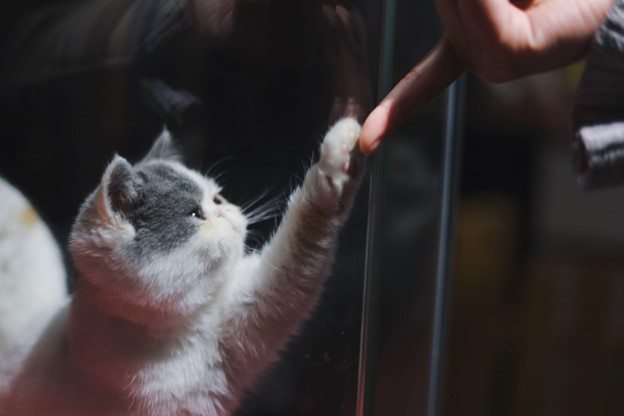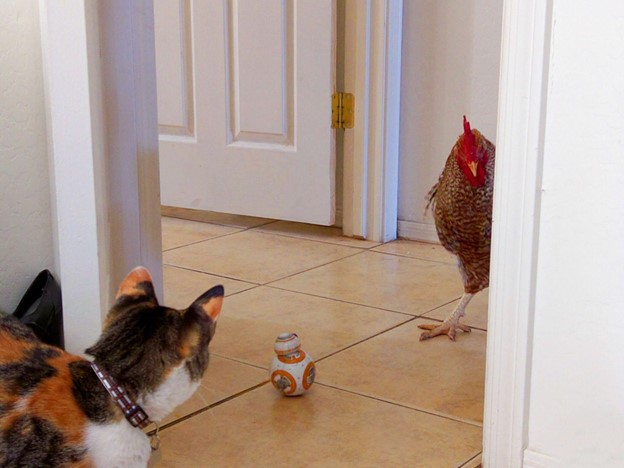Congratulations on becoming a new pet parent! Whether your cat safely delivered a new litter of kittens or you decided to foster, spending time with your fur baby will be tons of fun. As the kitten matures, they should learn to be comfortable in social setups.
Socializing kittens is crucial for their well-being and your peace of mind. This guide provides tips to help your kitten mature into a confident and social cat. But first, a word on the kitty’s early life.

Socialize the Kitty when She’s Young
The best time to bend a tree is when it is young. The same applies to cats. They learn best when little and craving information. Experts assert that the most crucial age for socializing a kitten is between two and nine weeks old. During this age, they are most responsive to learning, and the best time to learn about the kitten’s personality.
But early socialization is not always possible, especially for parents who opt to foster. Before kitty comes to live with you, they could have been interacting with other cats and people. If the kitten had a social mother, socializing could be easier. If the mother had drama around people and other pets, expect a kitten that goes into hysterics. They will have to unlearn what they know and learn new behaviors, which could be taxing.
That said, here’s how you can help your kitty become a social animal (pun intended).
Create a Comfortable Atmosphere
- First, turn your home into a comfortable place for your kitty. Set up the kitten’s crate in an area without draughts or noise. Put a cat pillow or bed at the front, and place a bowl of dry kitten food inside the crate.
Remember to set up a high place for the kitten to climb and rest. Then give the kitty about two days to adjust and familiarize itself with the sights, sounds, and smells.
Keep Everyone Calm
Everyone in the family will be excited and eager to meet the new member. But, keep everyone calm and let the kitty rest. Once the kitten is comfortable and confident in its space, you can allow her to meet other family members.
Gradually, allow the other members of the family to meet the kitty. But, avoid holding or playing with the kitten as this could scare her.
Offer Some Privacy
The first few meetings could be overwhelming for the kitten. Ensure the kitten has a secluded and quiet spot where they can slip away whenever they want some privacy.
Pet Her Gently and Often
After a couple of meetups with the family, you can allow other members to touch the kitty.
The primary caretaker should pet the kitten as often as possible. Petting reminds kittens of the sensation of being with their mother.
Pet your kitten and give her your undivided attention for at least five minutes. The kitten will feel more comfortable around people and more receptive to learning.
Talk to Kitty
Touch is a powerful sense, but also sound. During your petting sessions, talk with your kitten. Use a soft and gentle voice. The kitten will associate your voice with affection. However, at playtime, switch to a bright and cheery one. When a kitty gets into trouble, use a firm and stern tone.
Introduce New Animal Friends
The goal of socializing kittens is to help them be comfortable around people and other pets. The more often you expose the kitten, the more likely they will play and bond with others.
If you have other pets at home or buddies with fur babies, gradually introduce the kitten to other animals. The kitten should be okay hanging out with the other animals as long as they are healthy and gentle.
Be cautious around energetic animals and unneutered toms. For example, a playful dog could unknowingly hurt your kitten. An unneutered Tom could become aggressive and harm the kitten.

Watch Out for the Toddlers
As the kitty learns to be comfortable with people and other pets, remember to keep an eye on the toddlers. Toddlers love pets and would want to take care of their kittens. As they hang out, they tend to be rough and this could hurt your kitten. If you have toddlers at home, teach them how to pick up, hold, stroke and be gentle with the kitten.
Reward Positive Behavior and Maintain a Predictable Routine
Reward your kitten every time they are friendly with other people or animals. Help them learn that positive social interactions are good by positively reinforcing good behavior.
Finally, Keep Socializing Even When Your Kitty is a Grown Cat
After the nine-week mark, and your kitty has matured into a friendly cat, you may want to sit back. But, don’t stop socializing with your kitten. Everyone, (including humans) learns new behavior and adjusts their social responses depending on new experiences. It’s a lifelong learning experience. So, keep exposing your kitten to positive social experiences.
